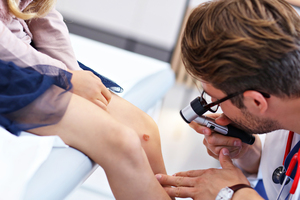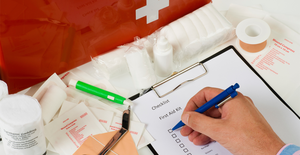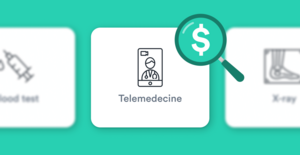Key points
- Dehydration is a condition caused by inadequate water in the body, disrupting essential physiological functions and can become life-threatening if untreated.
- Causes of dehydration include excessive sweating, prolonged physical activity, illness, and inadequate fluid intake, with symptoms ranging from thirst to confusion.
- Dehydration is categorized into mild, moderate, and severe stages, each presenting different symptoms and health risks, requiring prompt identification and treatment.
- Treatment for dehydration includes drinking water, sucking on ice cubes, consuming sports drinks with electrolytes, and eating water-rich foods; severe cases may require medical intervention.

Dehydration is a condition caused by the absence of adequate water in the body — which is essential for maintaining various physiological functions. It can occur in different stages, ranging from mild to severe. If left untreated, it can become a life-threatening condition, according to the American Academy of Family Physicians (AAFP). Understanding the symptoms, causes and treatment options for dehydration is important for preventing its progression and ensuring overall health.
What is dehydration?
Water is vital for various processes, including temperature regulation, nutrient transportation and waste elimination. When the body does not have enough water, it cannot carry out these essential functions effectively, leading to a range of symptoms and health complications. As explained by the AAFP, dehydration is a medical condition that occurs when the body loses more fluids than it takes in — thus disrupting the delicate balance necessary for optimal bodily functions.
There are several causes of dehydration according to the AAFP, including:
-
Excessive sweating
-
Prolonged physical activity
-
Illness
-
Inadequate fluid intake
According to the AAFP, dehydration can manifest in different forms, such as mild, moderate or severe dehydration, depending on the extent of fluid loss. Symptoms often begin with thirst and dry mouth, but as it progresses, other symptoms manifest, including:
-
Dizziness
-
Fatigue
-
Confusion
Additionally, the most severe cases of dehydration can cause complications like kidney failure or heat stroke according to the AAFP. Recognizing the signs of dehydration early and understanding its implications is crucial for timely intervention and treatment.
What are the stages of dehydration?
Dehydration can be categorized into three distinct stages, according to the CDC: mild, moderate and severe. Each stage presents its own set of symptoms and health risks, making it important to identify the level of dehydration promptly to prevent complications.
Mild dehydration
This initial stage typically involves a loss of 1-2% of body weight due to fluid loss. Symptoms may include slight thirst, dry mouth and reduced urine output. While mild dehydration can often be resolved with increased fluid intake, it is crucial to address it quickly to prevent progression.
Moderate dehydration
In this stage, the body loses about 3-5% of its total water content. Symptoms become more pronounced and may include increased thirst, dry skin, fatigue, dizziness and dark-colored urine. At this point, medical attention may be necessary to replenish fluids effectively.
Severe dehydration
This critical stage occurs when fluid loss exceeds 5% of body weight, leading to serious health risks. Symptoms can include extreme thirst, rapid heartbeat, confusion, sunken eyes and very little or no urine output. Severe dehydration is a medical emergency that requires immediate treatment, often through intravenous fluids, to restore hydration and prevent life-threatening complications.
What does water do for the body?
Water is a fundamental component of the human body, comprising about 60% of an adult's body weight. When the body becomes dehydrated, these processes can be disrupted, leading to a range of health issues and impaired bodily functions. The CDC explains the vital roles that which water plays in the body — highlighting the importance of staying adequately hydrated:
-
Digestion and Waste Disposal: Water aids in breaking down food and helps transport waste products out of the body, ensuring a healthy digestive system.
-
Joint Lubrication: Adequate hydration is essential for producing synovial fluid, which lubricates joints and reduces friction during movement.
-
Saliva Production: Water is a key ingredient in saliva, which is necessary for proper digestion and oral health.
-
Hormonal Balance: Water helps regulate the production and distribution of hormones, ensuring that various bodily functions are coordinated effectively.
-
Oxygen Delivery: Blood, which is primarily composed of water, transports oxygen to cells throughout the body, supporting cellular functions and overall vitality.
-
Body Temperature Regulation: Water plays a crucial role in thermoregulation, helping to maintain a stable body temperature through processes such as sweating and respiration.
-
Nutrient Transportation: Water facilitates the transport of essential nutrients to cells, ensuring that the body receives the energy and materials it needs to function properly.
-
Cellular Metabolism: Water is involved in various biochemical reactions within cells, supporting metabolism and energy production.
Symptoms of dehydration in adults and children
Adults and children may exhibit different signs of dehydration. Symptoms can escalate from mild to severe if not promptly addressed. Understanding these symptoms can help caregivers and individuals take appropriate measures to rehydrate and restore health:
Symptoms of mild or moderate dehydration in adults:
-
Thirst
-
Dry mouth
-
Not peeing
-
Dark yellow urine
-
Dry skin
-
Headaches
-
Muscle cramps
-
Dry cough
-
Low blood pressure
-
Loss of appetite or sugar cravings
-
Swollen feet
-
Chills
-
Constipation
-
Not sweating
Symptoms of severe dehydration in adults:
-
Little to no peeing or dark urine
-
Severely dry skin
-
Dizziness
-
Fast pulse
-
Fast breathing
-
Sunken eyes
-
Fatigue, low energy, mental fog
-
Loss of consciousness
Symptoms of dehydration in children:
-
Parched mouth and tongue
-
Under six wet diapers in a day
-
No wet diapers or peeing for 8 hours
-
Hollow eyes, sunken cheeks
-
Sleepy, low energy, irritability
-
Dry skin
-
Fast, heavy breathing
What causes dehydration?
While inadequate fluid intake is a fundamental cause, various conditions and lifestyle choices can exacerbate fluid loss, leading to dehydration:
-
Diarrhea and Vomiting: Both conditions lead to significant fluid loss, as the body expels water rapidly, making it challenging to maintain hydration levels.
-
Fever: Elevated body temperature increases fluid loss through sweating and can also raise metabolic demands, further necessitating increased water intake.
-
Sweating: Physical activity, hot weather or high humidity can lead to excessive sweating which depletes the body’s water reserves, especially if fluids are not replenished.
-
Excessive Urination: Conditions such as diabetes or the use of diuretics can result in increased urine output, leading to a higher risk of dehydration if fluid intake does not keep pace.
-
Inadequate Fluid Intake: Not drinking enough water throughout the day, particularly during periods of heat or exercise, can quickly lead to dehydration.
-
Certain Medications: Some medications can cause increased fluid loss or reduce the sensation of thirst, contributing to dehydration if not monitored.
-
Age: Both young children and older adults are at a higher risk for dehydration due to their bodies' reduced ability to regulate water balance and a decreased sense of thirst.
Effects of dehydration
As the body's water levels decrease, the NIH explains that various physiological functions become impaired, leading to a range of complications that can affect overall health and well-being.
-
Death: Severe dehydration can lead to organ failure and ultimately be fatal if not treated promptly.
-
Permanent Brain Damage: Prolonged dehydration can result in irreversible damage to brain cells, affecting cognitive function and overall neurological health.
-
Seizures: Electrolyte imbalances caused by dehydration can lead to seizures, which may pose significant risks to an individual’s safety.
-
Coma: In extreme cases, dehydration can result in a loss of consciousness or coma due to critical fluid and electrolyte imbalances affecting brain function.
-
Kidney Damage: Chronic dehydration can impair kidney function, leading to kidney stones or even kidney failure over time.
Dehydration can have serious and potentially life-threatening effects on the body if not addressed in a timely manner. It is important to seek emergency medical care if you are experiencing symptoms of dehydration and are unable to keep fluids down.
Dehydration treatment tips
Treating dehydration, especially in its mild to moderate stages, is extremely important for restoring the body's fluid balance and preventing further complications. Fortunately, there are several effective strategies to rehydrate and replenish lost fluids, according to the NIH:
-
Drink Water: The most straightforward and effective way to treat dehydration is by drinking plenty of water throughout the day to replenish lost fluids.
-
Suck on Ice Cubes: For those who may struggle to drink large amounts of water, sucking on ice cubes can provide hydration in a more manageable form while also soothing a dry mouth.
-
Have a Sports Drink with Electrolytes: Consuming sports drinks that contain electrolytes can help replace lost minerals and provide additional hydration, especially after exercise or in hot weather.
-
Eat Water-Rich Foods: Incorporating fruits and vegetables with high water content, such as watermelon, cucumbers and oranges, can also contribute to overall fluid intake while providing essential nutrients.
When to go to the hospital for dehydration
While mild to moderate dehydration can often be managed at home, certain signs indicate that professional medical intervention is necessary. The NIH warns that recognizing when to seek medical attention for dehydration is crucial, particularly in cases of severe fluid loss.
-
Diarrhea for 24 Hours or More: Persistent diarrhea can lead to significant fluid loss, and if it lasts for an extended period, it is essential to seek medical help.
-
Loss of Consciousness: If an individual experiences fainting or loss of consciousness, it may indicate severe dehydration and requires immediate medical attention.
-
Fever: A high fever, especially when accompanied by other symptoms of dehydration, can indicate a more serious underlying condition that needs evaluation.
-
Severe Dizziness or Confusion: Experiencing extreme dizziness, confusion or disorientation may signal critical dehydration and warrants prompt medical care.
-
Little to No Urine Output: A significant decrease in urine output, particularly if accompanied by dark urine, can indicate severe dehydration and should be addressed by a healthcare professional.
Urgent care near me for dehydration symptoms
Find and book same-day appointments for top-rated urgent cares, lab tests and telemed. Download the Solv app today! Convenient care, simplified with Solv.
FAQs
What is dehydration and what causes it?
Dehydration is a medical condition that occurs when the body loses more fluids than it takes in, disrupting the balance necessary for optimal bodily functions. It can be caused by excessive sweating, prolonged physical activity, illness, and inadequate fluid intake.
What are the symptoms of dehydration in adults and children?
In adults, symptoms of mild to moderate dehydration include thirst, dry mouth, not peeing, dark yellow urine, dry skin, headaches, muscle cramps, dry cough, low blood pressure, loss of appetite or sugar cravings, swollen feet, chills, constipation, and not sweating. Severe dehydration can cause little to no peeing, severely dry skin, dizziness, fast pulse, fast breathing, sunken eyes, fatigue, low energy, mental fog, and loss of consciousness. In children, symptoms can include a parched mouth and tongue, under six wet diapers in a day, no wet diapers or peeing for 8 hours, hollow eyes, sunken cheeks, low energy, irritability, dry skin, and fast, heavy breathing.
What are the stages of dehydration and how are they identified?
Dehydration can be categorized into three stages: mild, moderate, and severe. Mild dehydration involves a loss of 1-2% of body weight due to fluid loss and symptoms may include slight thirst, dry mouth, and reduced urine output. Moderate dehydration is when the body loses about 3-5% of its total water content, with symptoms including increased thirst, dry skin, fatigue, dizziness, and dark-colored urine. Severe dehydration occurs when fluid loss exceeds 5% of body weight, leading to serious health risks such as extreme thirst, rapid heartbeat, confusion, sunken eyes, and very little or no urine output.
What are the potential effects of dehydration on the body?
Dehydration can lead to a range of complications, including death due to severe dehydration leading to organ failure, permanent brain damage, seizures, coma due to critical fluid and electrolyte imbalances affecting brain function, and kidney damage.
How can dehydration be treated?
Dehydration can be treated by drinking plenty of water throughout the day to replenish lost fluids, sucking on ice cubes, consuming sports drinks that contain electrolytes, and incorporating fruits and vegetables with high water content into your diet. Severe cases of dehydration may require professional medical intervention.









